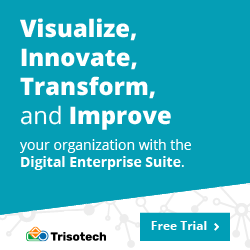AVIO and Digital Evolution: Perfecting the Patient Feedback Process
Blog: BPM Blog Avio Consulting

Claim denials often present tough obstacles for health insurance companies. Regulations like the Managed Care Reform Act of 1999 and the Appeal Clause from 2010’s Affordable Care Act both empower and encourage subscribers to contest refusal of coverage, so remaining on top of incoming appeals while handling complaints and grievances can pose a major challenge. Between the immense fines bestowed upon companies that fail to resolve grievances in a timely manner and the fact that lives can very well be on the line while determinations regarding appeals are made, prompt and proper handling of patient feedback is essential.
Thankfully, technology can help lessen the burden that a backlog of complaints, grievances, and appeals can impose. Adopting digital evolution by creating a process for handling handwritten appeals enables a company to more effectively monitor workload, maintain a tight grip on deadlines, and discover opportunities for greater efficiencies over time. The Appian platform’s one-two punch of robust workflow and low-code capabilities helps deliver an enterprise-grade solution to handle patient feedback, and bring it to market quickly.
Build an Actionable Backlog
Inbound appeals and complaints can originate from many sources, including online portals, email, fax, and snail mail. Some states will require paper forms, creating an immediate challenge for insurance companies looking to digitally evolve their processes. How can a team take a stack of documents and turn it into a workable queue?
Appian’s integration capabilities provide a crucial element of an overall solution for this problem that starts with document management. Scanned documents can be pushed to Appian via a custom Web API or uploaded using out-of-box document management tools. Appian can also employ interfaces using low-code SAIL technology to allow users to capture incoming appeals and grievances directly, complete with customizable validations and document upload capabilities.
Once collected, Appian Records immediately ensure the backlog of work is searchable, collaborative, and secure. Whereas a backlog may previously have existed in a spreadsheet, “the health plan now has a central repository for all appeals, grievances and complaints with access to related member, provider, claims and authorization information” (as noted in a Cognizant health insurance case study using Appian). Through the power of records, Appian can kickstart digital evolution by providing a robust, always available repository that gives immediate access to the information that team members need most.
Create a Smarter Process
While “complaints stem from minor issues that can typically be resolved by staff present at the time the concern is voiced,” a grievance is only considered resolved “when the patient is satisfied with the actions taken on [his or her] behalf.” On top of the high level of due diligence needed to address a grievance, the process for appeals adds other unique challenges, including legally mandated deadlines that vary based on the context of the appeal. Further complicating matters, skills required to address a particular subscriber issue can vary among team members, and “regardless of which department originally receives the grievance, it must be forwarded promptly to the designated grievance committee for investigation and follow up”. What can a health insurance company do to consistently handle this kind of work?
By leveraging a feature-rich process modeler, Appian can deliver enterprise-grade workflow capabilities that help guide teams and individuals through all necessary steps required for a thorough investigation. Expression Rules and Decisions can layer customized business logic on top of these steps to customize workflows on the fly, ensuring that only the work relevant to the task at hand is performed, and finished as quickly as possible. Feedback reviews can also easily trade hands to other departments by automatically issuing tasks that can be accessed anywhere, including from mobile devices, without additional development.
Finally, when an investigation has been completed, “CMS regulations require that the organization send the patient a written response”. “Responding to concerns is the “hallmark of service recovery”; assuring the individual that the situation will never happen again is a critical component of resolution.” Appian can assist in the generation and transmission of templated documents using out-of-the-box HTML email templating and plugins that convey the results of patient feedback evaluation in a manner deserving of the hard work that went into the investigation. Moreover, integration with internal tools or systems that share information with subscribers can be delivered easily via Appian integration objects.
Exceed Patient and Subscriber Expectations
From a white paper written by the ECRI Institute focusing on the benefits of a strong complaint/grievance management solution:
Rapid acknowledgment and resolution of complaints, grievances, and appeals can be provided not only through Appian’s enterprise-grade workflow design tools, but also via its highly customizable SAIL interfaces and report building tools. Backlogs and queues can be precisely represented using grids, icons, and indicators, and filterable reports that help draw attention to cases that may require immediate attention, or prioritize the overall workload.
Appian’s own Complaints, Appeals & Grievances Industry Solution demonstrates a great starting point for these visualizations. Total outstanding cases are actively displayed, and important KPI information like average processing cycle time is calculated and shown in real time. The solution also represents how an application experience can cater directly to a user, by providing a personalized list of tasks, appeals, and average processing time. Customer satisfaction targets and trends help provide real-time patient feedback to team members, and clear representation of overdue work rounds out a suite of tools that empower users to independently prioritize their own work, and ensure patient concerns are addressed and resolved as quickly as possible.
For more on how Appian can help provide excellent customer service, see our blog Providing exceptional customer service by embracing process.
Digital Evolution is Ongoing
The process for handling patient feedback doesn’t have to stop at simply working through a queue of tasks. Time metrics and other trends can be analyzed in reports to help address workflow inefficiencies. “Among many other data points, CMS suggests monitoring whether concerns are addressed in a timely manner; whether individuals expressing concern are informed of any resolution; and whether the organization applies lessons learned”. By leveraging a digital repository of patient feedback, metrics can help gauge the overall performance of a team for supervisors and stakeholders. These data points and many others can be collected throughout the lifetime of the Appian application, and leveraged to “identify recurring complaints or electronically organize data by category” using the same low-code tools that helped visualize the experience for the teams directly handling the feedback.
The digital evolution of a patient feedback application begins by defining the backlog, grows by enabling employees to track and prioritize their work, and thrives by focusing on data and process refinement. Appian further enables this lifecycle with high-availability enterprise environments and unparalleled security, ensuring that your organization can focus on people and process while continuing to grow.
To learn more about how AVIO can help your company digitally evolve and deliver a better experience for both patients and employees, contact us.
Leave a Comment
You must be logged in to post a comment.









Join the Conversation